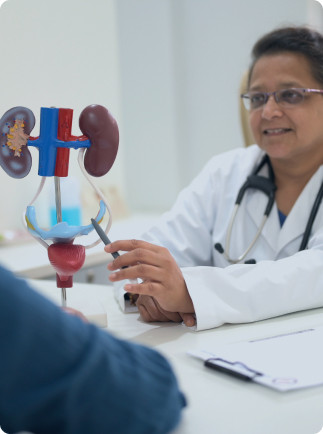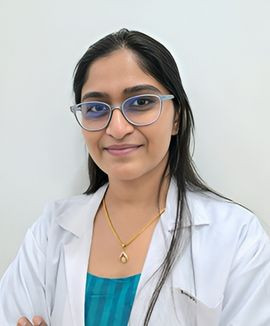Gynaecology
- Home
- /
- Gynaecology

Gynaecology Department
The Gynaecology department of Amba Health Centre & Hospital (AHCH) is dedicated to providing quality care for women through all stages of life. Our team of highly qualified gynaecologists offers a full spectrum of services, including preventive screenings, yearly examinations, management of ongoing conditions, and advanced surgical procedures.
We recognize that each woman's healthcare needs are unique, and we aim to work collaboratively with you to develop a personalized care plan that meets your needs.
Our Specializations
At AHCH, we specialize in treating the following conditions:
- Irregular periods
- Painful periods (Dysmenorrhoea)
- Heavy periods (Menorrhagia)
- Premenstrual syndrome
- Vaginal discharge
- Chronic pelvic pain
- Pelvic inflammatory disease (PID)
- Breast pain/lump/discharge
- Contraception
- Perimenopausal and menopausal problems
we do the following procedures:
- Pap smear
- Endometrial biopsy
- Intrauterine contraceptive device (IUCD) removal and insertion
- Mirena removal and insertion
- Breast examination
Advanced surgeries
- Hysterectomy (Abdominal/Vaginal)
- Anterior and posterior repair (Colporrhaphy)
- Salpingectomy
- Ovarian cystectomy
- Wertheim’s hysterectomy
- Therapeutic hysteroscopy
- Sacral suspension surgeries for uterine and vault prolapse
- Cervical polyp removal
- Bartholin cyst/abscess treatment
- Pelvic floor reconstruction
- Dilatation and curettage (D and C)
- Total laparoscopic hysterectomy (TLH)
- Non-descent vaginal hysterectomy
- Myomectomy (Open/Laparoscopic)
- Oophorectomy
- Radical vulvectomy
- Diagnostic hysteroscopy
- Surgery for endometriosis
- Adhesiolysis
- Loop electrosurgical excision procedure (LEEP)
- Management of uterine polyps
- Gynaecologic reconstructive surgery
- Transobturator tension-free vaginal tape (TOT/TVT) sling for stress urinary incontinence
Doctors for Gynaecology

Dr. Priyanka Virani
Obstetrician and Gynecologist, Laparoscopy Surgeon
Qualification
MBBS, DGO, MRCOG, FMAS,MD
FAQ
-
Women are usually advised to begin regular Pap screenings around the age of 21, or within three years of becoming sexually active, whichever comes first.
-
Lifestyle adjustments, hormone replacement therapy (HRT), and medications prescribed by a gynaecologist are effective approaches to alleviate menopause symptoms.
-
Gynaecological cancers can be linked to various risk factors, such as a family history of cancer, age, and specific lifestyle choices. If you experience unusual bleeding, pelvic pain, or unexplained weight loss, it is important to consult a doctor as these could be potential signs of gynaecological cancer.
-
It is recommended that you perform a monthly breast self-exam and get a mammogram every one or two years after you turn 40. Your doctor may suggest earlier or more frequent screenings based on your individual risk factors.
-
A combination of approaches, such as pelvic floor muscle exercises, lifestyle changes, and medication, can help individuals manage urinary incontinence.
Book an Appoinment
Thank you for your connecting us for appointment. We value your concern and we will revert back shortly to confirm your appointment details.


